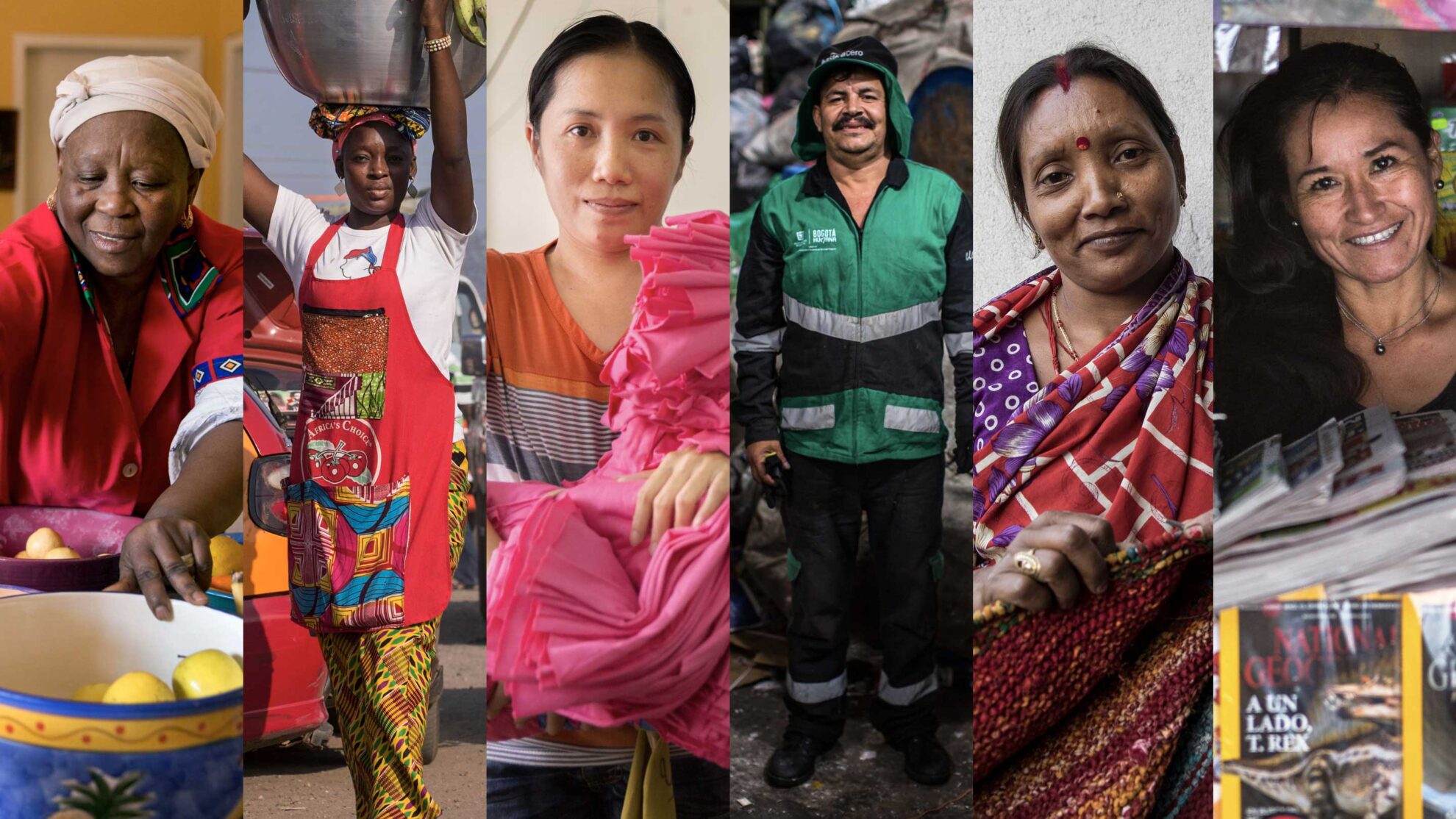Worker organizations and trade unions seek a new framework that supports all workers in the supply chain.
Worker organizations representing the voices of millions of workers from South and South-East Asian garment production countries are calling for the European Union to make sure a new supply chain directive has the power to end exploitative working conditions.
The proposed directive would introduce mandatory environmental and human rights due diligence as part of a Sustainable Corporate Governance initiative, and would include liability, enforcement mechanisms, and ways for victims of corporate abuse to seek redress.
Trade unions and worker organizations from Bangladesh, India, Cambodia, Sri Lanka, Thailand, Indonesia, Vietnam, Philippines and Pakistan are urging policy-makers in an open letter to ensure the directive extends to all workers in the supply chain.
“We urge the European Union to play its part in ensuring that the proposed human rights due diligence Directive applies to all workers, in all tiers of the supply chain; and that non-judicial enforcement mechanisms - enforcement measures that don’t rely on a court - are created with women workers in mind and include grievance mechanisms designed by workers,” says Marlese von Broembsen, WIEGO’s Director of Law and the Informal Economy.
“To have a meaningful impact on the industry and its workers, the directive must hold directors and social auditors liable for human rights violations in supply chains, and the enforcement mechanisms must address access to justice barriers for workers from production countries.”
Research shows if the rules only apply to permanent employees in bigger tier one factories, most supply chain workers, who work in smaller tier 2 and 3 factories - in workshops and at home - will continue to face human rights violations.*
“The further down the chain one goes, the less workers earn, and the more production costs and risk they carry. Before the pandemic, homeworkers, who were contracted directly by factory supervisors/‘contractors’ or by workshops to work from home, earned between half and one third of the minimum wage. Care must be taken not to incentivize suppliers to informalize the workforce, which is likely if only permanent workers in tier one factories are included.” says von Broembsen.
Nivedita Jayaram, Asia Coordinator-Labour Rights, for the Asia Floor Wage Alliance says the laws would address a gender issue, with women workers making up 80 per cent of workers in the garment sector.
“Women workers need genuine access to justice. They need to know who they produce for, what their rights are, and be able to lodge complaints and grievances without the threat of losing their jobs or gender-based violence. Many of these workers are migrants, first generation labour-market participants and from lower castes and classes. Factories hire women because gender norms have conditioned them to be compliant. Combine these factors and the likelihood of human rights violations increases.”
These six principles can ensure access to justice for workers:
- It should be mandatory for enterprises to ensure that complaints and grievance mechanisms in supplier countries comply with the principles outlined in the OECD Guidelines for Multinational Enterprises.
- Workers and their organizations from every tier of the supply chain should participate in the design of complaints and grievance mechanisms.
- Women workers should be represented by organizations of their own choosing.
- As part of transparency, brands should contractually oblige their suppliers to ensure that every worker in every tier of the chain, irrespective of their status of employment, has a written contract that includes the name of the brand for which the worker produces.
- Brands should pay for the education of all workers in all tiers of the chain to know who they produce for; know their rights; and how the complaints and grievance mechanisms work. Workers and their organizations should participate in decisions about the design and delivery of training.
- Non-judicial enforcement mechanisms should be embedded within a comprehensive enforcement strategy that (1) provides for civil liability of directors and auditors and prevents audits and certifications from being safe harbours for corporations to avoid civil liability and (2) addresses barriers in access to justice, including short limitation periods for bringing judicial actions and a reversal of the burden of proof from plaintiffs to respondents.
Signatories to the open letter include the Asia Floor Wage Alliance, Women in Informal Employment: Globalizing and Organizing (WIEGO), HomeNet International, HomeNet Southeast Asia, HomeNet South Asia, Home Based Women Workers Federation and the National Trade Union Federation Pakistan.
ENDS
Editor’s notes:
Women in Informal Employment: Globalizing and Organizing (WIEGO) is a global network focused on empowering the working poor, especially women, in the informal economy to secure their livelihoods. We believe all workers should have equal economic opportunities, rights, protection and voice.
Research cited:
- In India 89.9 per cent of workers in the garment sector work in small and medium enterprises. Many of these enterprises also subcontract to homeworkers. A recent survey of 340 garment factories in Delhi and Bengaluru showed that 58 percent of surveyed factories outsource to homeworkers, who work from their homes.
- Data collected by the Asia Floor Wage Alliance in tier one factories in six countries suggests that most workers—particularly post-COVID—do not have secure employment. They are employed on either fixed term contracts or as casual workers performing daily wage and piece-rate work. Even if they are statutorily entitled to social protection and automatically become permanent employees after a designated number of years of continuous employment, factories terminate their employment just before the contract period expires to avoid statutory obligations. Additionally, many workers do not have written contracts or any proof of employment to demand employment and wage security. During the COVID-19 pandemic, suppliers have engaged in additional informalisation strategies to shift production risks and costs to employees.
- A study of 40 factories in eight garment and footwear producing countries found that it is common practice for suppliers to maintain one factory that complies with codes and to subcontract to other factories that are not audited and do not comply with the codes.
